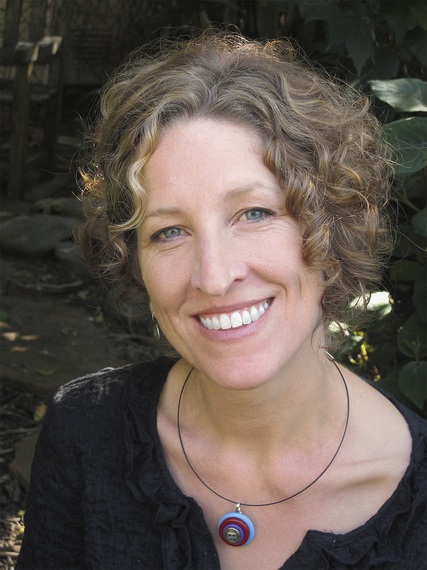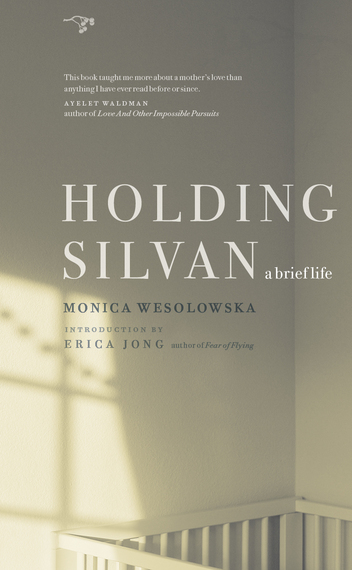The new mother's worst nightmare came in shards of bewildering words: "subdural hematoma... basal ganglia... thalami...sagittal sinus..." And the terrible eventual diagnosis: "severe hypoxic ischemic encephalopathy."
Once they had processed the meaning of it all -- that their beautiful baby had no functional brain, no hope for a life, Monica Wesolowska and her husband David made the hardest decision ever required of parents, to let their infant son die. It was a decision complicated by advanced medical technology, a world into which the family was swept up, and by the wrenching physical, emotional and moral issues. But the two grieving parents clung fiercely to the conviction that they were choosing what was best for their son, and to the determination that for whatever time he had they would give him comfort, care and abundant love.
Wesolowska tells this tale with unflinching honesty in Holding Silvan: A Brief Life, a small book that manages to keep the reader mesmerized with what is ultimately a story of courage and, above all, life. She spoke with this writer recently about the book, and those days.
"I wanted and needed to write it," Wesolowska says, in response to a question about whether the writing was therapeutic. "I felt very fortunate to be able to spend time remembering Silvan. Also, to revisit the time, do research..." Years later, both the experience and the firstborn son are integral to Wesolowska's life; in the days and weeks after Silvan's birth there was time only to struggle with the issues at hand. It is the immediacy of this struggle, overlaid with the love that surrounded Silvan as he died, that holds the reader.
After publication, we asked, did Wesolowska get negative feedback? "I was surprised at how little," she says. "In part, I think it was because so few people want to read a book about the loss of a baby. A few heartening back-and-forths, when people came around. But the most difficult (discussions) are with parents of brain-damaged children. It turns out that what they're dealing with is much less extreme (damage.)" In such cases Wesolowska tries to communicate the singularity of the choice she and David made. "My goodness, I would never suggest a child with disabilities is not absolutely loveable. I'm not here to judge the difference of your love."
There were helpful and unhelpful things that people said and did as Silvan was dying and in the aftermath. The best, Wesolowska says, "were the people who told me I was a good mother. What I was going through was motherhood, and a deep love. The hardest to take were when people said 'Why didn't you let him die a different way,' or 'How can you be so certain?'"
No one, though, tried to talk them out of their decision. In their Berkeley, CA area, "We were in a kind of liberal bubble," she says. "But we really struggled toward the end. Legally, it was frightening."
For all the fear, tragedy and loss, Holding Silvan is surprisingly uplifting. And, Spoiler Alert: there is a happy ending.


